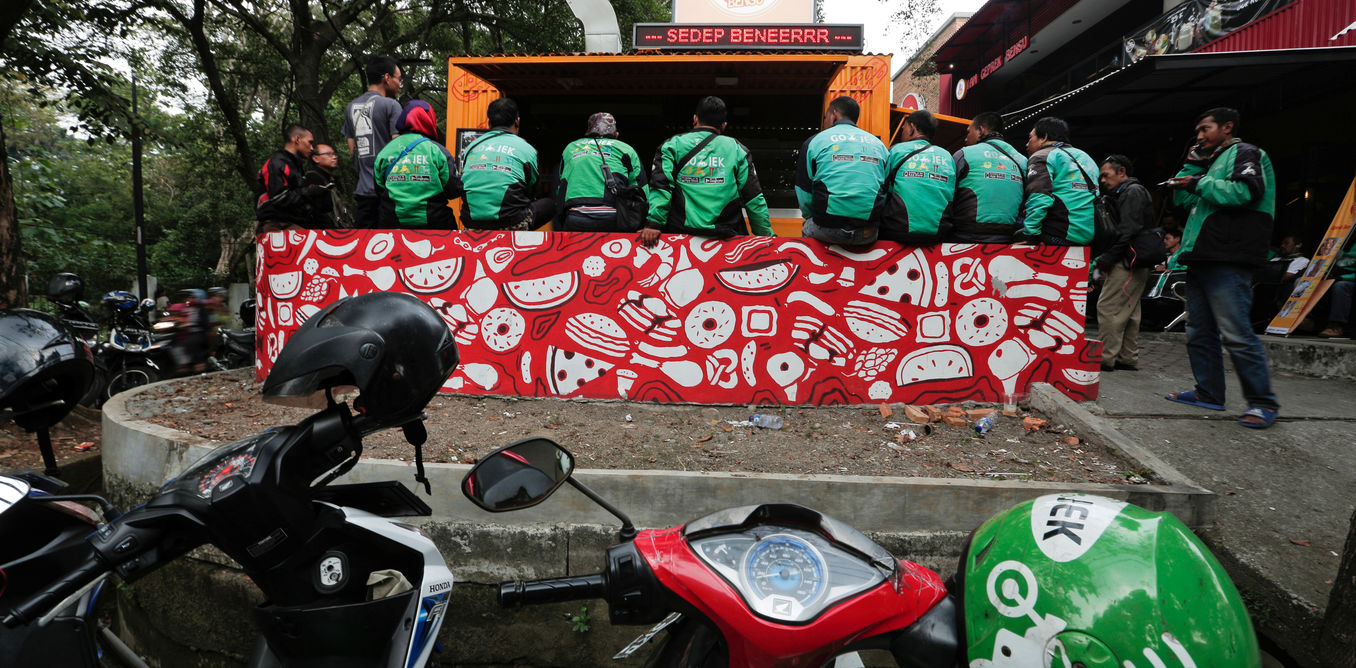Yesterday afternoon, around 1,000 motorcycle taxi drivers for ride-sharing apps, colloquially known in Indonesia as “online ojeks”, protested about low pay in front of the Presidential Palace in Jakarta. Though it wasn’t on the agenda at first, the protesters were pleased when President Joko Widodo took time out of his schedule to invite representatives of the drivers inside the palace to hear their complaints.
President Jokowi said he was surprised to learn that the drivers said they earned only around IDR1,600 (US$0.12) per kilometer driven. As such, Jokowi promised to mediate the dispute between drivers and their ride sharing operators to find a solution beneficial to both parties.
“I have ordered the Transportation Ministry and the IT Ministry to gather the operators tomorrow and bring the drivers along for talks. Find a middle ground so no one suffers,” Jokowi said yesterday, as quoted by CNN Indonesia.
Transportation Minister Budi Karya Sumadi implied that he agreed with the drivers’ complaints that their pay is too low.
“So [drivers have to drive] 6 km before earning IDR10,000, so they feel like it’s not enough. The recommendation is IDR2,500 per kilometer,” he said.
During the protest, the drivers demanded IDR4,000 per kilometer.
Since the protest, Go-Jek, Grab, and Uber (which is in the process of handing over its Southeast Asia operations to Grab) have yet to take any concrete action beyond saying that the welfare of their partner drivers is of their utmost concern.
The ride sharing apps brand themselves as middlemen between customers and drivers, who are said to be “partners” or “micro-entrepreneurs” who can decide to make however much money they want, whenever they want. However, a study conducted last year found that the ride-sharing companies use questionable approaches to maximizing drivers’ labor output, particularly through unfair incentive policies, while eliminating some of their rights as workers and shifting costs onto them.





Reader Interactions